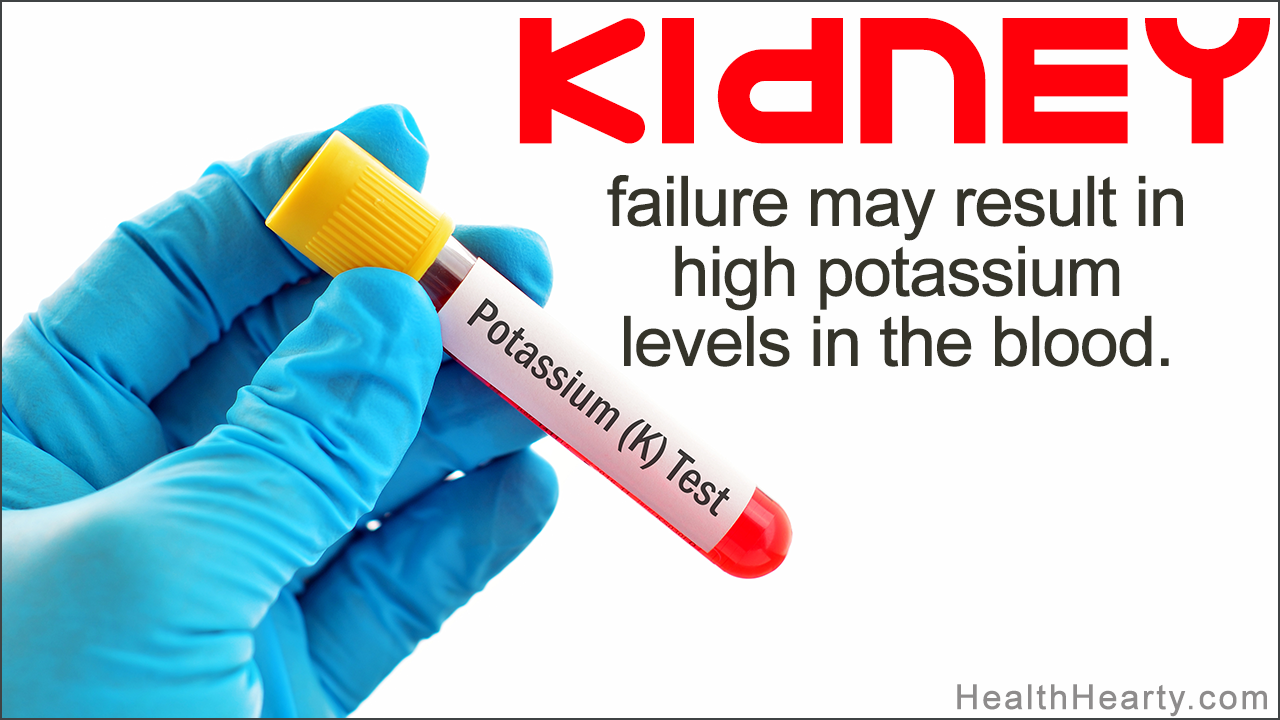
While potassium is necessary for good health, too much of it can be equally harmful. In this article, you will get some valuable information regarding high potassium levels in blood.
Potassium is required for carrying out some of the most vital functions of the body. It is responsible for controlling various activities carried out by the muscles. In normal conditions, it regulates the electrical rhythm of the heart, as well as the electrical signals of the nervous system. This mineral is also important because it prevents our cells from getting dehydrated. When the potassium levels in blood become high, it is known as hyperkalemia. Too much of potassium in blood can adversely affect the functioning of the heart. If not treated immediately, a very high level of potassium in blood can even lead to death.
Causes
Potassium is an essential component of all the body cells. Hardly 2 percent of the total potassium present in our body is found in the blood. There is a rise in potassium levels in blood when it is drawn out of the cells and released into the bloodstream. This may happen due to certain medical conditions where cells and tissues of the body are destroyed on a large scale. Serious traumatic injury, surgery, severe burns, alcoholism, drug abuse, and destruction of tumor cells are few such factors that can badly damage the cells and tissues and release a high amount of potassium into the blood.
There are certain medicines which when taken can increase the levels of potassium in blood. Those who are suffering from type 1 diabetes tend to have elevated levels of potassium in their blood. Malfunctioning of the kidneys is another underlying cause behind this problem. When there is an excess amount of potassium in blood, the kidneys help to flush it out through urine. When the kidneys fail to carry out this function, the level of potassium in the blood goes up.
Among the various hormones secreted by the adrenal glands, aldosterone is the hormone responsible for elimination of excess potassium into the urine. If the adrenal gland is affected by some disease, like Addison’s disease, which diminish the aldosterone secretion, then there will be a decrease in the quantity of potassium ejected out of the body. This can result in hyperkalemia.
Symptoms and Treatment
A slightly elevated level of potassium in blood usually does not have any symptoms. Even when potassium in blood increases slowly, the symptoms are not that obvious. In other cases, the most commonly found symptoms are slow heartbeat and weak pulse rate. These two symptoms are accompanied by fatigue, tiredness, nausea, breathing difficulty, weakness in the muscles which often makes it difficult to move the limbs, etc. If the condition turns severe, then the heart may stop beating completely. In some rare cases, hyperkalemia is found as a genetic disorder. Here, the potassium levels in blood become high all of a sudden and cause paralysis of muscles.
High potassium levels can be diagnosed with the help of blood tests, followed by an ECG to confirm it further. The main aim of the treatment is to lower the level of potassium. Doctors figure out the underlying cause and treat that particular health condition. Moreover, suitable medicines are also prescribed to bring down the amount of potassium present in blood to normal. The patient is advised to avoid food that are rich in potassium. When there is a mild increase in the potassium levels, the patient can be treated as outpatients only. However, in those cases where there is a significant rise in it, the patient has to be admitted into the intensive care unit for stringent monitoring.
Those of you who have medical history of hyperkalemia, should strictly follow the instructions of your doctor in order to keep the condition under control. Moreover, during the course of treatment, potassium levels can be effectively managed with the help of a proper diet plan.





